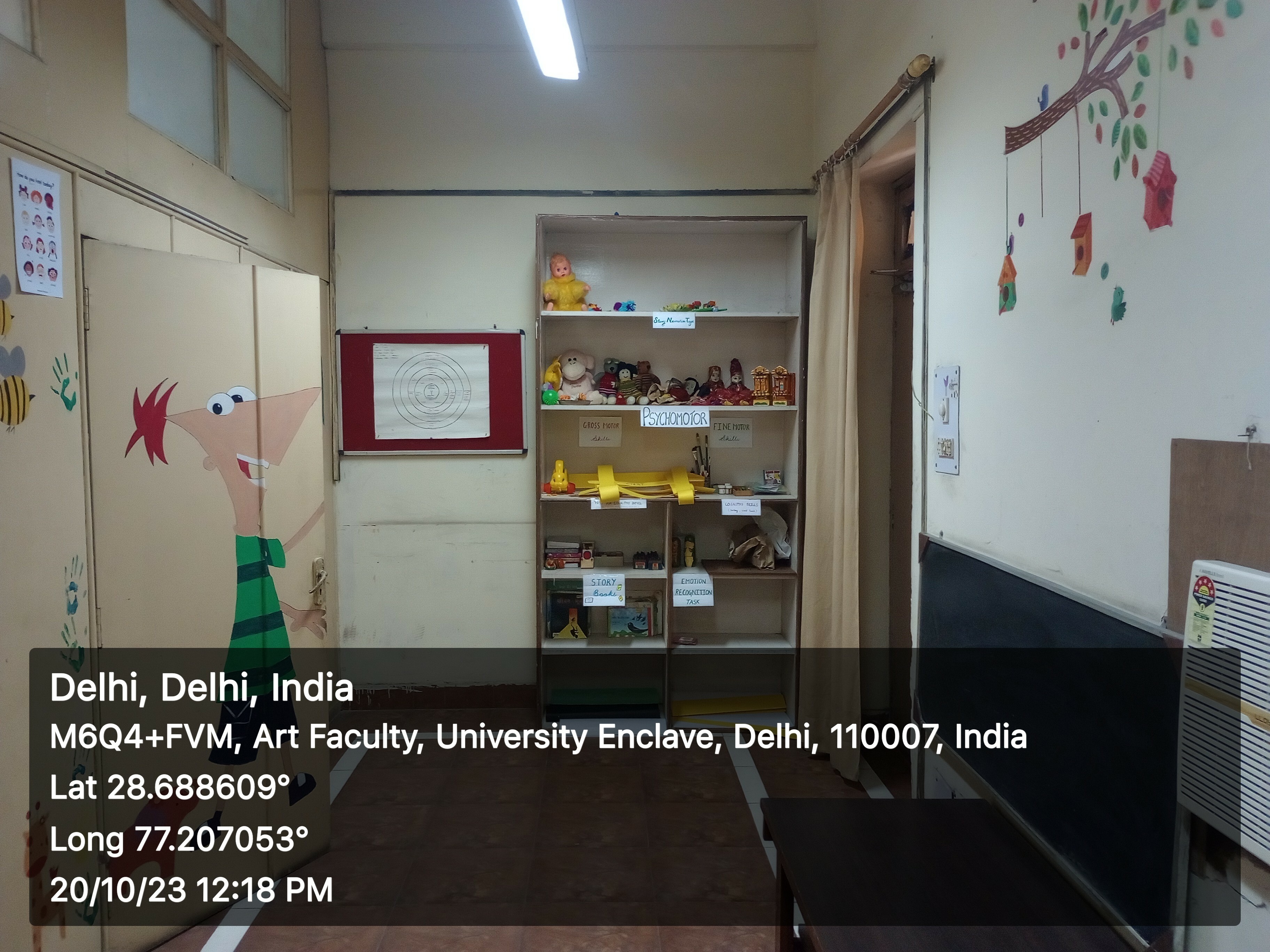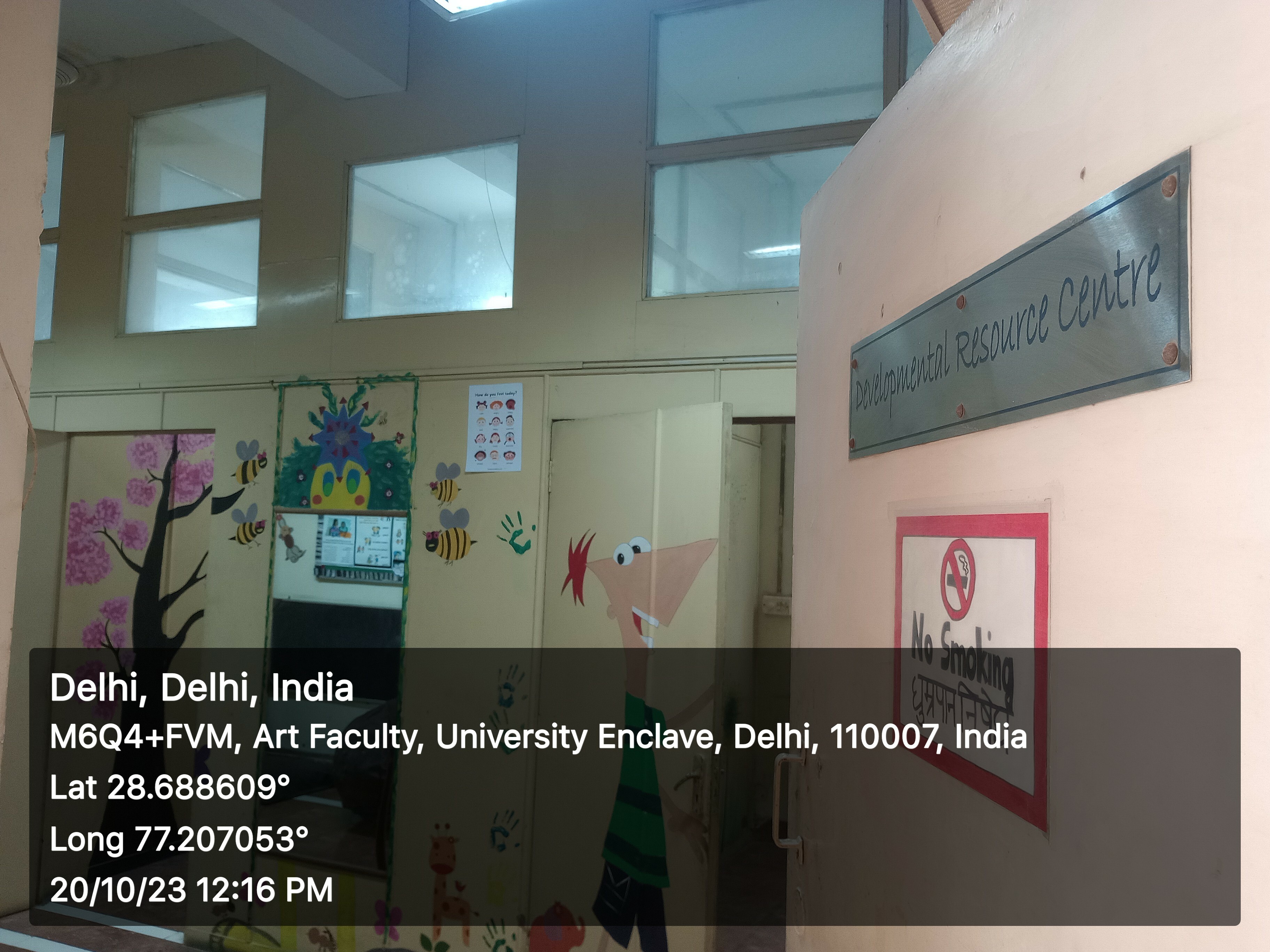Developmental Resource Center
The Developmental Laboratory, housed within the Psychology Department, is a dynamic and purpose-built space that plays a crucial role in advancing our understanding of child development. This facility boasts a wide array of features tailored to support comprehensive research and interactive learning experiences for both participants and researchers.

Central to the laboratory is a one-way mirror, an invaluable tool for observing children as they engage in various activities. This feature is essential for carrying out naturalistic observation by collecting data without intruding on the subjects. Complementing this observation area is an activity zone designed for children to participate in diverse tasks and activities. This dedicated space encourages children to engage in tasks that mirror real-world scenarios, allowing researchers to closely monitor their actions, reactions, and interactions. It serves as a dynamic testing ground for assessing developmental milestones, cognitive growth, and social behaviours.

The "Story Corner" is another key feature of the laboratory. The area is a hub for conducting research into language acquisition, early literacy skills, and the effects of storytelling on cognitive development.
The laboratory is further enriched by its extensive collection of play materials, thoughtfully organised to study four major domains of psychological development: cognitive, psychomotor, language, and socio-emotional. These resources are carefully chosen to encourage several parts of a child's development, from communication and emotional expression to problem-solving and fine motor abilities.These materials are carefully chosen to encourage multiple facets of a child's development, from communication and emotional expression to problem-solving and fine motor abilities. Blackboards and chalk are provided in the lab to aid with cognitive development and learning. Researchers can carry out studies on the improvement of fine motor skills, arithmetic abilities, and cognitive development using these conventional teaching aids. They offer a platform for investigating how kids engage with and pick up knowledge from their surroundings, which advances our knowledge of the mental processes underlying kids' development.

Picture Credits: Harsh Raj (M.A. Psychology 2023-25)